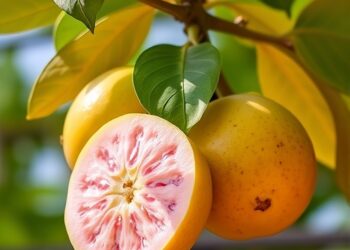Focusing on Sweden, a new IIASA study assessed the feasibility of recovering phosphorus from municipal wastewater as an alternative sustainable source of this non-renewable mineral.
Focusing on Sweden, a new IIASA study assessed the feasibility of recovering phosphorus from municipal wastewater as an alternative sustainable source of this non-renewable mineral.
Phosphorus is an essential mineral present in many everyday foods and crucial for human health. It is also a critical nutrient for plants, making it a key ingredient in the production of fertilizers. Acquired primarily through mining and processing of phosphate rock, phosphorus is a finite non-renewable resource, and scientists predict that its uneven distribution around the world, as well as growing global food demand, might result in higher prices of fertilizers in the near future. This highlights an urgent need to improve the efficiency of its use.
Previous studies show that recovering phosphorus from municipal wastewater can provide an alternative sustainable source of this mineral, as nearly 98% of the phosphorus consumed by humans in urban areas ends up in sewage sludge. Currently, the most common practice for sewage sludge management in Europe is land application. This practice, which involves spreading treated sewage sludge onto land to improve soil properties and provide nutrients for crops, is becoming increasingly controversial. Sludge often contains both valuable resources and harmful substances, so land application of sludge can introduce both phosphorus and potentially hazardous contaminants into the soil. Effective recovery methods could help to minimize the environmental impacts, promoting healthier water systems and biodiversity.
In their study, former IIASA Young Scientists Summer Program (YSSP) participant, Marzieh Bagheri, and colleagues from IIASA evaluated various phosphorus recovery technologies, their costs, and greenhouse gas emissions to identify economically viable strategies for phosphorus recovery from municipal wastewater.
The study examines different scenarios, including phosphorus recovery technologies in individual plants and hubs, as well as different sludge management strategies including land application, incineration, and hydrochar production under current market conditions. Sweden was selected as the case study, primarily due to its reliance on land application of sewage sludge and potential legislative shifts favoring extraction methods.
“Our study assesses the economic viability of phosphorus recovery in Swedish municipal wastewater treatment plants and identifies the potential challenges that could be encountered as part of this process. We also proposed tailored solutions to those challenges for municipal wastewater treatment plant operators and provided recommendations for guiding future policies to help develop supportive regulations for phosphorus recovery,” explains Bagheri.
The prevalence of smaller, widespread municipal wastewater treatment plants in Sweden has been pinpointed as a central obstacle, creating substantial economic and logistical hurdles that discourage investments in phosphorus recovery.
The researchers discovered that the economic viability of phosphorus recovery varies significantly between individual plants and strategies. Individual plants face high recovery costs, making the recovery less profitable without subsidies. In contrast, hub strategies, which involve collaboration among multiple plants, can reduce costs. In addition, the authors highlight that developing hub networks and converting sludge into marketable products can generate revenue and offset disposal costs, reducing overall management expenses.
The findings of the study emphasize the crucial role of external factors, such as regulatory mandates or long-term increase of fertilizer prices, in making phosphorus recovery economically viable. On the other hand, the authors point out that policies promoting specific phosphorus recovery technologies risk hindering adaptability to diverse conditions, potentially prioritizing high-infrastructure investments and overlooking more sustainable solutions. They also emphasize that comprehensive environmental impact assessments for each recovery technology are required to avoid unintended increases in emissions.
“Phosphorus is essential for food production and the efficient recovery of this mineral from wastewater would help to ensure a sustainable supply, as well as reduce reliance on finite resources, while supporting food security,” notes Adriana Gomez Sanabria, a researcher in the IIASA Pollution Management Research Group. “Understanding phosphorus recovery economics is vital for informed investments. Cost-effective methods and collaborative approaches could play a major role in enhancing financial sustainability and supporting the circular economy by recycling waste into valuable resources.”
Reference:
Bagheri, M., Gómez-Sanabria, A., Höglund-Isaksson, L., (2024) Economic feasibility and direct greenhouse gas emissions from different phosphorus recovery methods in Swedish wastewater treatment plants. Sustainable Production and Consumption, 49, 10.1016/j.spc.2024.07.007. (In Press) [https://pure.iiasa.ac.at/19885]
Journal
Sustainable Production and Consumption
Article Title
Economic feasibility and direct greenhouse gas emissions from different phosphorus recovery methods in Swedish wastewater treatment plants




